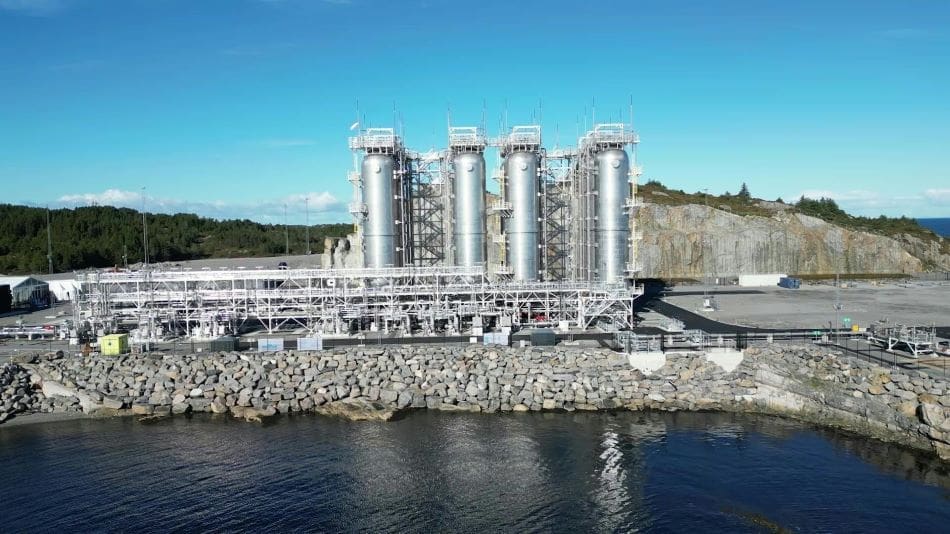Oslo, Norway | AFP
Norway on Tuesday launched a flagship carbon capture and storage (CCS) project, a technology seen as crucial to curbing climate change but struggling to find a viable economic model.
Bearing the English name for the Vikings’ wooden ships, the Longship project involves capturing carbon dioxide emitted from a cement plant and later from an incineration plant, transporting it by ship to a terminal on Norway’s west coast, and then injecting and storing it beneath the seabed.
The project has received significant financial support from the Norwegian state, which will cover 22 billion kroner ($2.2 billion) of the total estimated cost of 34 billion kroner for the installation and operation over the first 10 years.
Norway has presented Longship as the “world’s first full-scale value chain” for capture and storage of carbon in the greenhouse gases that cause harmful climate change.

“This is not just an important moment for Norway, it is a breakthrough for carbon capture and storage in Europe,” Norwegian Energy Minister Terje Aasland said.
For the capture component, the facility will be officially inaugurated Wednesday at a cement plant operated by Germany’s Heidelberg Materials in Brevik, southeastern Norway.
It will prevent 400,000 tonnes of CO2 from escaping into the atmosphere each year.
Another part of the project, the Hafslund Celsio waste incineration plant near Oslo, is also expected to capture 350,000 tonnes of CO2 starting in 2029.
The liquefied carbon dioxide will be transported by ship to the Oygarden terminal near Bergen, where it will be injected into a pipeline to be stored 110 kilometres (68 miles) offshore in a saline aquifer 2.6 kilometres below the seabed.
The terminal has been in place since last year as part of the Northern Lights project — led by oil giants Equinor, Shell and TotalEnergies — which claims to be “the world’s first commercial CO2 transport and storage service”.
Backed by the UN’s Intergovernmental Panel on Climate Change (IPCC) as a way of reducing the carbon footprint of industries hard to decarbonise, such as cement and steel, CCS technology remains complex and expensive.
Without financial assistance, it is currently more profitable for industries to purchase “pollution permits” on the European carbon market than to pay for capturing, transporting and storing their CO2.
The total global carbon capture capacity currently amounts to only about 50 million tonnes, according to the International Energy Agency, equivalent to just 0.1 percent of global annual emissions.
phy/ef/abx/po/rlp
© Agence France-Presse
Article Source:
Press Release/Material by AFP
Featured image credit: AFPTV / AFP



